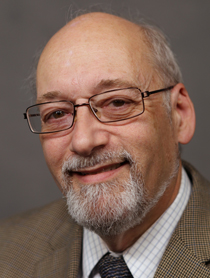
Culture
Now I’ve lived long enough to read serious articles warning: “We need to consider ways to reverse or at least slow rapid depopulation.”

Doerflinger
I remember when people thought overpopulation would destroy us and the planet. Paul Ehrlich's 1968 book "The Population Bomb" popularized this idea, leading to urgent calls for "zero population growth." Dr. Warren Hern even warned in 1993 that the human species was a global "cancer": "We have become a malignant ecopathologic process," he wrote. (Hern happened to be a practitioner of late-term abortions.)
Now I've lived long enough to read serious articles warning: "We need to consider ways to reverse or at least slow rapid depopulation."
That is the subtitle of "The Unexpected Future," published Aug. 20 in the online magazine Quillette. Citing United Nations data and other sources, researchers Joel Kotkin and Wendell Cox say we "need to worry about the potential ill-effects of depopulation, including a declining workforce, torpid economic growth, and brewing generational conflict between a generally prosperous older generation and their more hard-pressed successors."
All developed nations, including the United States, are well below replacement level. Even populous countries like India and China show declining fertility, with East Asian countries like Japan facing especially rapid declines.
As to causes, the authors say young adults see a future of "greater economic insecurity, poorer living conditions, and fewer opportunities" than their parents. Ironically, if their attitude leads to fewer young people working to support a rapidly aging population, it will help bring about that very outcome for any children they do have.
Concern about climate change has also led some young adults to forgo parenthood or even marriage -- expecting a child to place strain on the environment, or at least to face a toxic one.
The authors say the result is a "post-familial" society, where a growing percentage of households consist of only one person.
They cite the likely adverse effects of this on economics, politics and social solidarity, but also hint at something deeper. "This is as much a civilizational or spiritual crisis as an economic one, and it requires a shift in values, including perhaps religious ones."
Devout Christians, Jews and Muslims have more children than their secular neighbors, as discussed in the book, "Shall the Religious Inherit the Earth?" by Eric Kaufmann, professor at Birkbeck, University of London. This is not only about a particular religion's teaching on birth control.
In a May 31 article in the online journal Public Discourse, author and attorney Alexandra Davis emphasizes the spiritual side of the problem. She writes that "the consequences of the dwindling birth rate are far greater than questions related to population figures."
Young adults often forgo family life to enhance their individual autonomy and their hopes of success and comfort. What they may miss out on, says Davis, are two things "central to human nature": connection and meaning.
Parenthood teaches us to give ourselves to helpless others who depend on us -- and to realize how much we depend on others, especially near the beginning and end of our lives.
And in ordering our lives around our own individual pleasure, we give up opportunities for a more meaningful life -- one that survives and thrives through the suffering and disappointments that life can bring. Life in a family brings pleasures of its own, but it also brings an enrichment of the person that will never come from thinking of and relying on ourselves alone.
People of faith know this. My life is not just about me. In loving God and others, I become more fully human.
For both practical and more profound reasons, then, how unhealthy is it that, to many public officials and others in our society, the phrase "reproductive health" means efforts to sterilize us and eliminate our nascent children?
- Richard Doerflinger worked for 36 years in the Secretariat of Pro-Life Activities of the U.S. Conference of Catholic Bishops. He writes from Washington state.
Recent articles in the Culture & Events section
-
What is truth?Michael Reardon
-
The 75th anniversary of St. Ignatius of Loyola Church, Chestnut HillThomas Lester
-
The most important prayer you already knowLaura Kelly Fanucci
-
Two years after DobbsRussell Shaw
-
Scripture Reflection for July 21, 2024, Sixteenth Sunday in Ordinary TimeDeacon Greg Kandra





